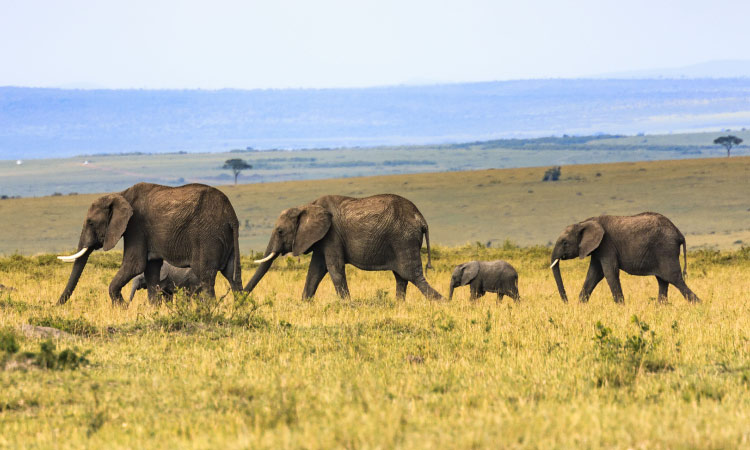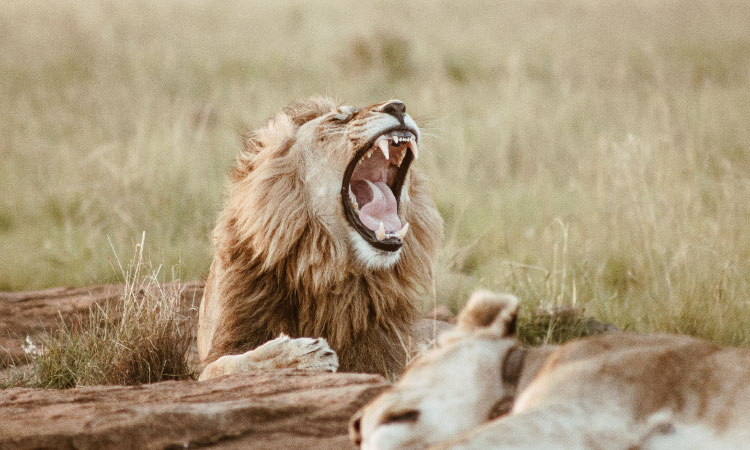As humans, our teeth are made to break down the meat and plants we eat as omnivores. For animals, their teeth are also based on what they eat, but the different diets of herbivores and carnivores cause their teeth to be different from ours. Here are the ways in which your teeth differ from the teeth of herbivorous and carnivorous animals!

Herbivores
Animals that only consume plants are called herbivores, and include elephants, sheep, deer, giraffes, kangaroos, beavers, and more. Because plants are often difficult to break down, an herbivore’s molars are flatter and wider for grinding food and aiding in digestion. Their incisors are sharp so they can tear plants, but may not be present on the upper and lower jaw. Whitetail deer, for example, only have lower incisors and a rigid upper jaw that helps them to tear apart plants while they eat. Some herbivores, like cows and horses, have jaws that move sideways as they chew.

Carnivores
On the opposite end of the diet spectrum are carnivores, such as lions, wolves, sharks, dolphins, vultures, and more. Carnivores exclusively eat meat and use their teeth to kill their prey before eating it. They have sharp incisors and pointed canine teeth for incapacitating and getting into the flesh of their meal. They have fewer molars than other animals because much of their chewing is done by the teeth in the front of their mouth.

Omnivores
As humans, we are considered omnivores because we eat both plants and meat. Though there are many animals who are also omnivores, like bears and pigs, human teeth have evolved specifically for our diets and eating habits. We use our molars for grinding and our incisors and canines for ripping and biting into our food. Human teeth are also different from animal teeth in that we get two sets of teeth in our lifetime; some animals only get one set, like beluga whales, and others grow multiple sets throughout their lives, like elephants. Furthermore, we have at most 32 adult teeth, including wisdom teeth; other animals have anywhere from 0, such as birds and turtles, to thousands, like snails!
Don’t Act Like a Wild Animal!
Another difference between our teeth and animals’ is that unlike most animals, we monitor our oral health and practice certain habits to ensure our mouth’s stay clean. An important part of maintaining great oral health is coming in for regular dental checkups and cleanings. Contact us to schedule your next appointment!
Contact Us Today